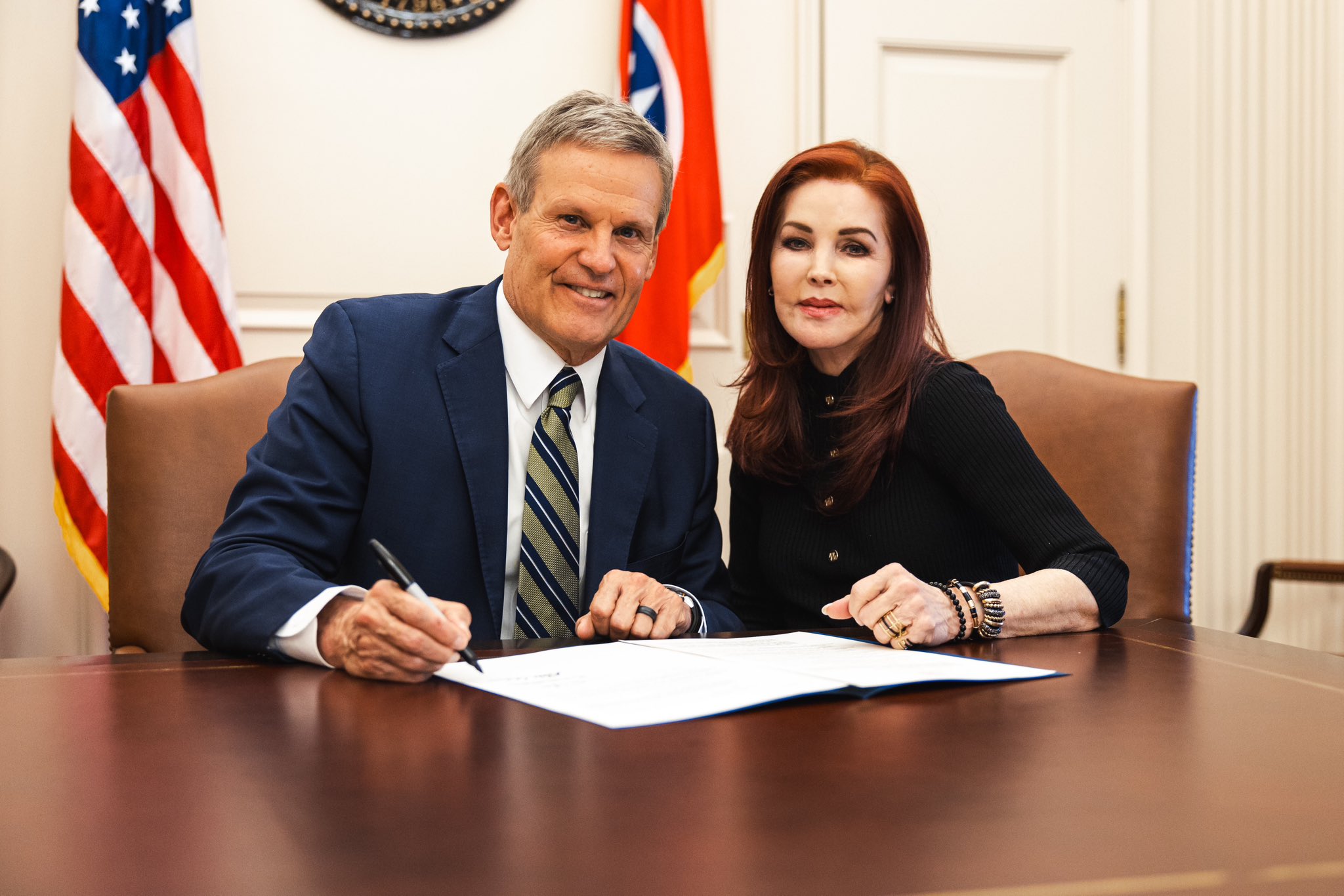Tennessee recently entered the spotlight for becoming the first American state to implement legislation that protects musicians from threats posed by artificial intelligence.
State Governor Bill Lee met with the late musician Elvis Presley’s ex-wife Priscilla on Monday to celebrate enacting the Ensuring Likeness Voice and Image Security (ELVIS) Act. It was signed into law on Mar. 21 at the Robert’s Western World saloon in Nashville alongside country music stars Luke Bryan and Chris Janson.
“We employ more people in the music industry here than any other state,” Lee told reporters in Nashville.
The state’s music industry contributes US$5.8 billion to the nation’s gross domestic product and employs over 61,000 people.
Several organizations such as the Academy of Country Music, the Christian Music Trade Association and the Songwriters of North America supported the new legislation. It prohibits the unauthorized use of an artist’s voice without their consent. Those who violate it can receive hefty fines and other penalties.
“We applaud Tennessee’s swift and thoughtful bipartisan leadership against unconsented AI deepfakes and voice clones,” Recording Industry of America Chairman Mitch Glazier said last month in a government news release.
“Today, the ELVIS Act becomes the first-of-its-kind law to protect musicians from AI-generated synthetic media,” Tennessee Senator Jack Johnson added.
The Elvis act is signed. pic.twitter.com/JE5c4IrA93
— Chris Janson (@janson_chris) March 22, 2024
Read more: Zoom debuts AI-powered work platform for better collaboration
Read more: Saudi Arabia plans to become world AI leader with US$40 billion technology fund
Renowned local musician says law isn’t comprehensive enough; needed nationwide
Dave Pomeroy, President of the Nashville Musicians Association, said he is happy about the ELVIS Act but he believes more provisions are needed. He also thinks the protections need to be extended throughout the country.
“I think it’s a good start to make sure that technology cannot be used to replace musicians and artists,” the bassist said in a Monday interview with ABC News. “The Tennessee bill is the first in the country and I think it’s important that we get it done on a national level.”
Pomeroy says his organization is concerned about the bill’s ambiguous language concerning live musical performances and their various unique sounds and characteristics.
“We would like to see language that makes it very clear that it is more than likeness voice and image security,” Pomeroy said.
“Likeness can certainly be interpreted by some to mean a musical performance but we’re hoping to add some language to the bill early next year when we can amend it to make it very clear that musicians who play on sound recordings are protected.”
Nashville’s rich musical history has earned it nicknames like “Songwriting Capital of the World” and “Music City.”
rowan@mugglehead.com














